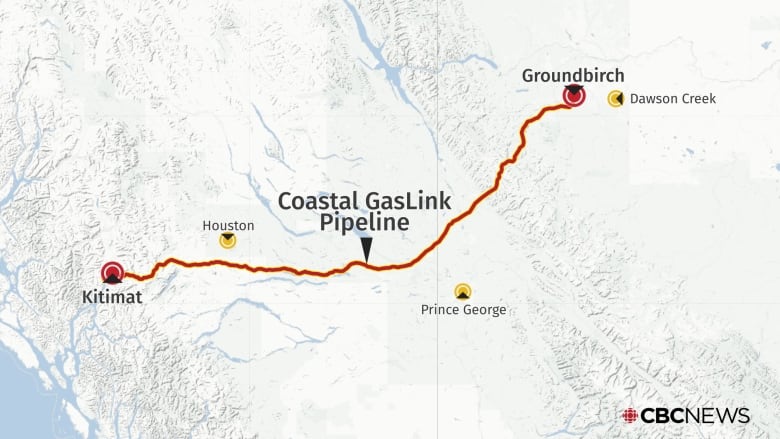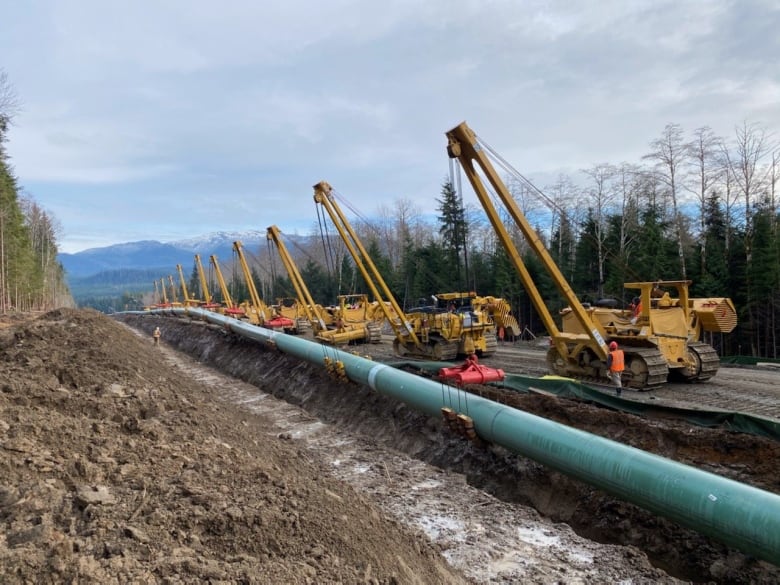The B.C. government has ordered Coastal GasLink to stop work on a section of pipeline near Prince George after officials found sediment-laden water being “pumped into an area that ran into tributaries of the Anzac River.”
In an email to CBC News, B.C.’s Environmental Assessment Office said there were “negative impacts” to a fish-bearing stream, a matter it takes “very seriously.”
High levels of sediment in the water can be deadly to fish and their eggs and destructive to fish habitat.
This incident is the latest in an ongoing pattern of CGL environmental violations.
Many of the violations involve the pollution of sensitive waterways and wetlands through erosion and sediment as CGL builds a natural gas pipeline in northern B.C.
CGL’s construction project crosses about 625 lakes, rivers, streams, creeks, and wetlands, many of them fish-bearing.

The most recent violation was discovered during an onsite inspection on April 24 by the Environmental Assessment Office and the office of the B.C. Energy Regulator, the province’s energy watchdog.
The stop work order was issued to CGL on April 28.
In a written statement, CGL said it had “paused” construction work on a three-kilometre stretch of the project near the Little Anzac River outside of Prince George.
No exact location was specified.
In an email to CBC News, the EAO said its compliance and enforcement branch would assess whether to recommend an administrative penalty against CGL.
Coastal GasLink has been fined just over $450,000 for environmental violations since 2022.
In an email to CBC News, CGL’s parent company TC Energy said its crews are “working hard ” to protect waterways from erosion and sediment amidst “high volumes of snowmelt and rain” this spring.

The company said the stop work order “is not expected to affect the overall project schedule” to complete pipeline construction by the end of 2023.
Two weeks before this most recent environmental violation, CGL reported two spills of clay lubricant while tunnelling under the Morice River.
The bentonite clay is a fine particulate slurry used to install pipeline in the tunnelling process being used at the Morice River crossing.
CGL called it “non-toxic.”
The spill location by the Morice River has for years been the site of conflict between Wet’suwet’en hereditary chiefs who oppose the pipeline and Coastal GasLink.
The salmon-bearing Morice River, on Wet’suwet’en traditional territory, is considered a sacred headwater called the Wedzin Kwa,
When it’s finished, the $11.2-billion CGL pipeline will carry fracked natural gas destined mainly for Asia along a 670-kilometre route to an LNG export facility in Kitimat.
CGL said the pipeline is now 87 per cent complete.
CGL said more than 5,500 people were at work on pipeline construction in March.


